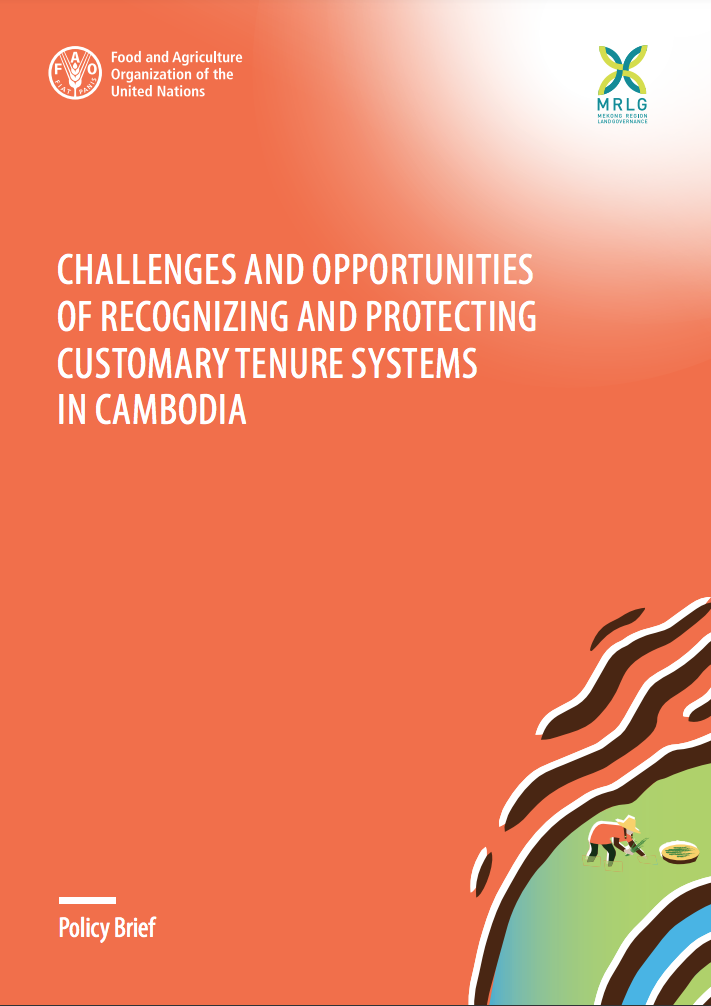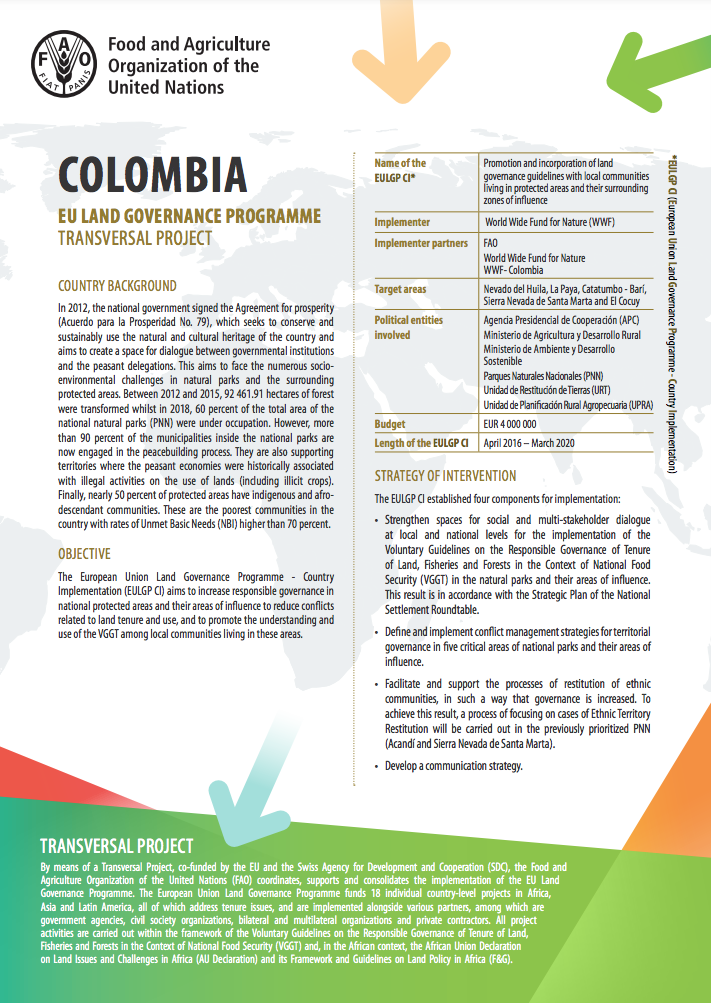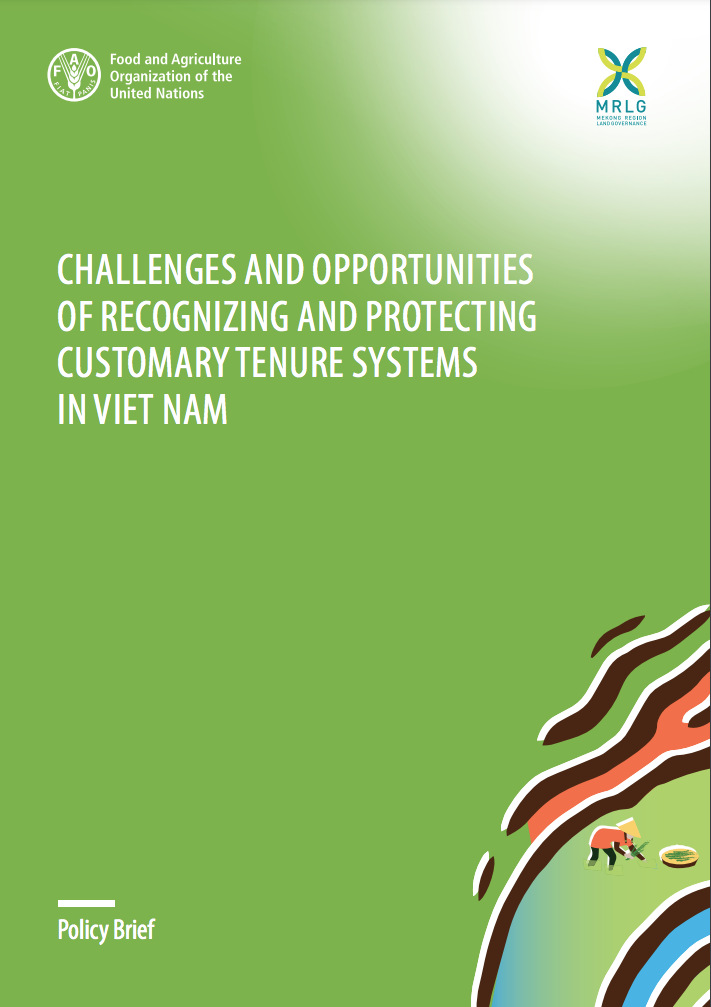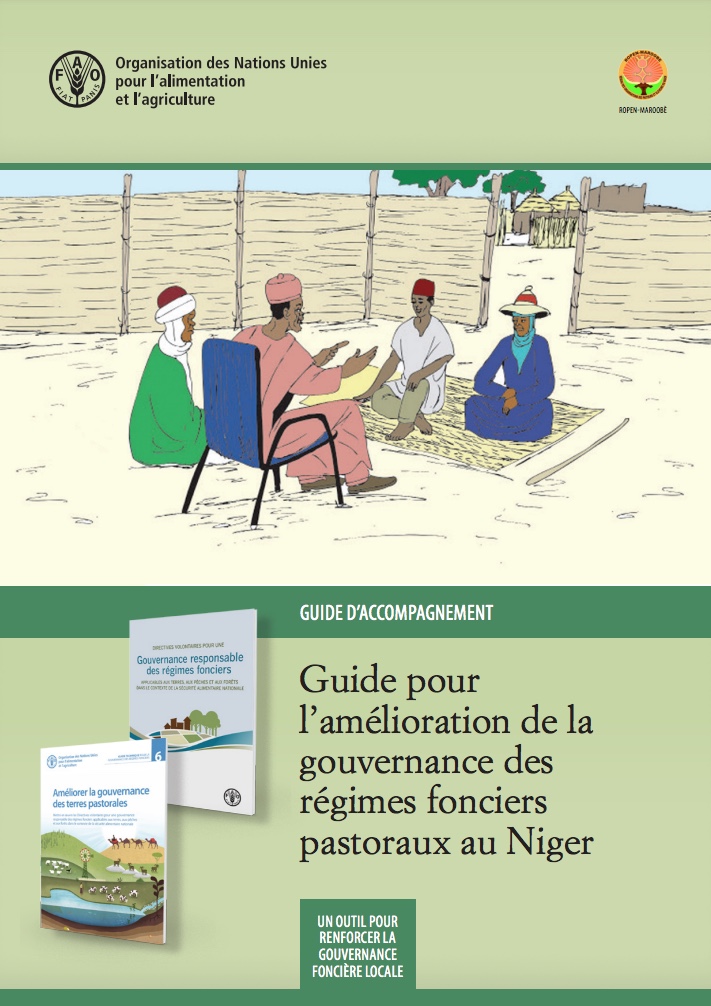Focal point
Location
The Food and Agriculture Organization of the United Nations leads international efforts to defeat hunger. Serving both developed and developing countries, FAO acts as a neutral forum where all nations meet as equals to negotiate agreements and debate policy. FAO is also a source of knowledge and information. We help developing countries and countries in transition modernize and improve agriculture, forestry and fisheries practices and ensure good nutrition for all. Since our founding in 1945, we have focused special attention on developing rural areas, home to 70 percent of the world's poor and hungry people.
Members:
Resources
Displaying 76 - 80 of 5073Challenges and opportunities of recognizing and protecting customary tenure systems in Cambodia
This policy brief was developed in order to enable a meaningful engagement and policy dialogue with government institutions and other relevant stakeholders about challenges and opportunities related to recognizing customary tenure in Cambodia.
EU Transversal support to country implementation - Colombia
n 2012, the National Government signed the Agreement for prosperity (Acuerdo para la Prosperidad No. 79), which seeks the conservation and sustainable use of the natural and cultural heritage of the country and aimed to create a space for dialogue between governmental institutions and the peasant delegations. This aiming to face the numerous socio-environmental challenges in Natural Parks and surrounding areas of protected areas. On the one hand, there is the transformation of the protected areas.
Challenges and opportunities of recognizing and protecting customary tenure systems in Viet Nam
This policy brief was developed in order to enable a meaningful engagement and policy dialogue with government institutions and other relevant stakeholders about challenges and opportunities related to recognizing customary tenure in Viet Nam.
Guide pour l’amélioration de la gouvernance des régimes fonciers pastoraux au le Niger
Ce guide constitue un outil à destination des acteurs de terrain au Niger. Il vise à contribuer à l'amélioration de la gouvernance foncière pastorale et en particulier à la prévention et à la résolution des conflits et au développement de processus de concertation inclusifs.
Le guide est unique car il est élaboré en collaboration avec un pour les éleveurs au Niger. Il sera un outil concret pour aider les acteurs à résoudre les conflits liés à l'accès aux ressources naturelles au niveau local.
Land Degradation Neutrality in Small Island Developing States
Land degradation exacerbates the unique vulnerabilities of Small Island Developing States (SIDS) to environmental challenges, such as climate change, flash floods, soil erosion, lagoon siltation, coastal erosion and sea level rise, undermining their economic potential. Land Degradation Neutrality (LDN) contributes to achieving the Sustainable Development Goals (SDGs) in SIDS, preserving biodiversity and increasing resilience to climate change. Land degradation has a strong negative impact on climate-sensitive sectors like agriculture, water resources management and coastal zone management.











